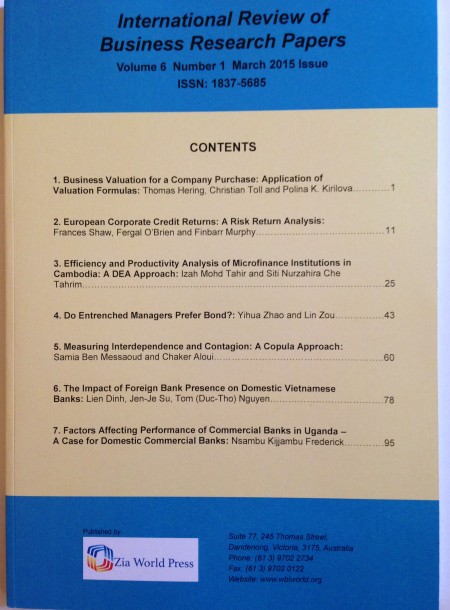Trade-Off Theory or Pecking Order Theory with a State Ownership Structure: The Vietnam Case

International Review of Business Research Papers
Vol. 11. No. 1. , March 2015, Pages: 114 – 132Trade-Off Theory or Pecking Order Theory with a State Ownership Structure: The Vietnam Case
The process firms use to choose their capital structures is explained by different corporate finance theories in which trade-off and pecking order are the two most popular hypotheses. Testing these two models will help to determine whether a target debt ratio exists, and if so, how rapidly firms adjust their current leverage levels to match this target level. The findings in this paper determined that the pecking order theory might not be applied in Vietnam when internal funds and new equity issuance are independent with the leverage level. In contrast, our empirical results proved that the long-run target debt ratio does exist in the Vietnamese market. The partialadjustment model has shown that both private firms and state-owned firms rapidly adjust to their optimal levels of debt. However, the state ownership structure does not affect the amount of debt taken during the year by the firms.Field of Research: capital structure, state-owned firms, private firms, speed adjustment.
